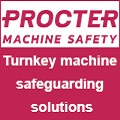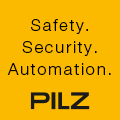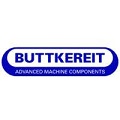
Posted to News on 2nd Dec 2015, 16:19
Robotics key to making the most of our surgeons
According to research conducted by the Personal Social Services Research Unit (PSSRU) in 2012, it costs over 560,000 to train a surgeon. This includes investment from both the prospective surgeon and the NHS, a steep price, considering the fact that tuition fees aren't getting any cheaper. There's a lot of press at the moment about collaborative robotic advancements being a threat to employment, but when it comes to the medical sector, surgical robots may actually help surgeons get the most out of their educational investment.
Surgeons invest a lot of time and effort developing their skills and knowledge, but often the physical toll of years spent exerting themselves in lengthy surgeries can result in a relatively short career lifespan. By law, in the UK, surgeons must retire from public health service at the age of 65 and from private healthcare by the age of 70. However, early retirement in the mid 50s is quite common within the sector as a result of the labour-intensive nature of surgery.
Modern surgical robots are now enabling doctors to perform complex procedures in a seated position, controlling the robot from a console. This obviously has major health benefits for surgeons. Rather than spending hours standing over a patient, risking neck and back trouble, a surgeon can perform an operation in a comfortable position. In addition, the use of surgical robots means that invasive surgeries can now be completed using keyhole methods, greatly reducing operating time.
This is, of course, the major selling point of surgical robots. Being able to augment a surgeon's knowledge and skill by essentially miniaturising their movements, as well as compensating for any hand tremors, means that intricate surgeries are easier and safer for patients.
Ensuring the consistent, reliable nature of these machines comes down, in no small part, to the nature of the gears and drives in use. That's why robotics OEMs use high-precision gears such as those manufactured by Harmonic Drive. These gears allow for highly accurate movements that can be repeated again and again with precision.
The world of surgical robotics, thanks to this reliable accuracy, is also on the cusp of "telesurgery'. This is the idea that a surgeon could operate on a patient from across the country, or even the world, opening up all sorts of possibilities for utilising the skills of specialised surgeons. The obvious benefit would be giving people in remote areas access to much needed surgery, but this approach could drastically reduce patient waiting lists and support the effort to do away with the NHS's postcode lottery of good care. Currently, the main obstacle to this is latency, the time delay between the surgeon's hand movement and the robot's response.
Such is the potential for collaborative working between humans and robots in the medical field that Google's life sciences division is working with Johnson & Johnson's medical device company, Ethicon, to develop surgical robots that use artificial intelligence technology. The two conglomerates are investigating how advanced sensor and imaging technology can complement the knowledge of surgeons in new ways, such as highlighting nerve cells, blood vessels and tumour margins.
Whatever your take on the increasing presence of robotics in our lives, it's clear that surgical robots have a laundry list of benefits to surgeons, from reducing physical strains and decreasing the amount of lengthy, invasive procedures, to allowing remote procedures so that the wider NHS can benefit from specialised skills. However you look at it, robotic support in the operating theatre is going to help surgeons work better for longer, increasing the return on the investment in their education.
To learn more about surgical robots and high-precision gears please visit www.harmonicdrive.de/en/home.
Unit 36, Wolseley Court
Staffordshire Technology Park
ST18 0GA
UNITED KINGDOM
+44 (0)1785 245190






























